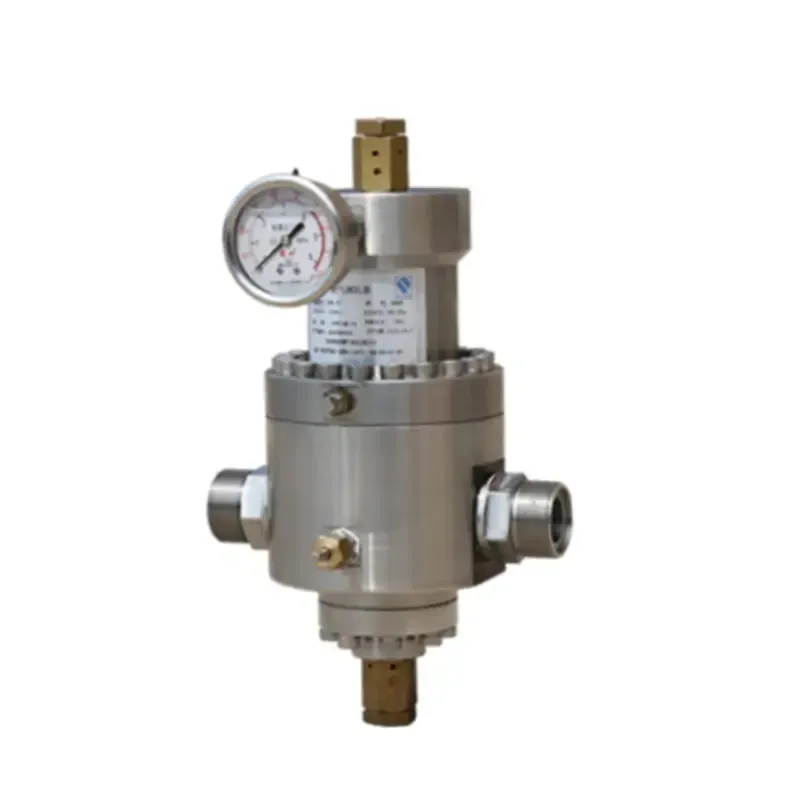
Dec . 25, 2024 07:30
Back to list
Exploring the Dynamics of Gas Pressure Vessels in Industrial Applications
Gas Pressure Vessel A Critical Component in Industrial Applications
Gas pressure vessels play a pivotal role in various industrial processes by safely storing and managing gases under pressure. These containers are designed to withstand high pressure, making them essential in applications ranging from chemical manufacturing to oil and gas production. The integrity and reliability of gas pressure vessels are crucial for safety and efficiency, given the potential risks associated with high-pressure gas storage.
Design and Construction
Constructing a gas pressure vessel involves adhering to stringent engineering standards and regulations. The materials used must be able to withstand corrosive environments and high pressure, typically involving high-strength steel or other alloys. The design process includes considerations for the maximum allowable working pressure (MAWP) and the temperature at which the vessel will operate. Engineers utilize advanced modeling techniques to ensure that the vessel can handle the stress it will encounter during its service life.
The shape of gas pressure vessels is often cylindrical, a design that can efficiently distribute stress across its surface. End caps are commonly used to seal both ends, and these components are typically welded to ensure a hermetic closure. Proper welding techniques are crucial since any imperfection can lead to catastrophic failures. Additionally, safety features such as pressure relief valves and rupture disks are integrated to prevent overpressure scenarios, ensuring that the vessel can safely handle unexpected surges in pressure.
Applications
Gas pressure vessels are used in a multitude of applications. In the chemical industry, they store gases like nitrogen, hydrogen, and oxygen, which are essential for various reactions and processes. In pharmaceuticals, they may contain sterilizing gases, while in food processing, they often store gases used for food preservation and packaging. Oil and gas industries rely heavily on these vessels to safely transport and store natural gas, ensuring that the energy sector operates smoothly.
gas pressure vessel

One of the most critical applications of gas pressure vessels is in the production and storage of liquefied natural gas (LNG). The storage process requires maintaining the gas at extremely low temperatures and high pressures, necessitating highly specialized vessels designed to prevent leaks and withstand thermal stresses.
Safety Considerations
Safety is of paramount importance when dealing with gas pressure vessels. The consequences of a failure can be catastrophic, leading to explosions, environmental harm, and loss of life. Hence, regular maintenance and inspection are vital. Engineers often conduct non-destructive testing (NDT) to identify any flaws in the vessel’s structure. Routine inspections focus on weld integrity, material corrosion, and pressure relief systems to ensure that the vessel remains in compliance with safety regulations.
The importance of training personnel cannot be overstated. Operators must be well-versed in the potential risks associated with gas pressure vessels and understand the protocols for safe operation. Emergency preparedness plans that include evacuation procedures and response strategies for potential gas releases are also critical components of safety management regarding gas pressure vessels.
Conclusion
Gas pressure vessels are indispensable in modern industrial processes, enabling safe, efficient storage and handling of gases under pressure. Their design and construction require meticulous planning, adherence to strict safety regulations, and continuous maintenance to prevent failures. As industries continue to innovate and expand, the demand for reliable gas pressure vessels will only grow. Therefore, ongoing research and technological advancements are essential to enhance the safety and efficiency of these crucial components. The future of gas pressure vessel technology will likely focus on improving materials, refining design processes, and ensuring environmental sustainability as part of broader industrial advancements. By prioritizing safety and efficiency, the industry can responsibly harness the potential of gas pressure vessels for a variety of applications.
Next:
Latest news
-
Safety Valve Spring-Loaded Design Overpressure ProtectionNewsJul.25,2025
-
Precision Voltage Regulator AC5 Accuracy Grade PerformanceNewsJul.25,2025
-
Natural Gas Pressure Regulating Skid Industrial Pipeline ApplicationsNewsJul.25,2025
-
Natural Gas Filter Stainless Steel Mesh Element DesignNewsJul.25,2025
-
Gas Pressure Regulator Valve Direct-Acting Spring-Loaded DesignNewsJul.25,2025
-
Decompression Equipment Multi-Stage Heat Exchange System DesignNewsJul.25,2025

